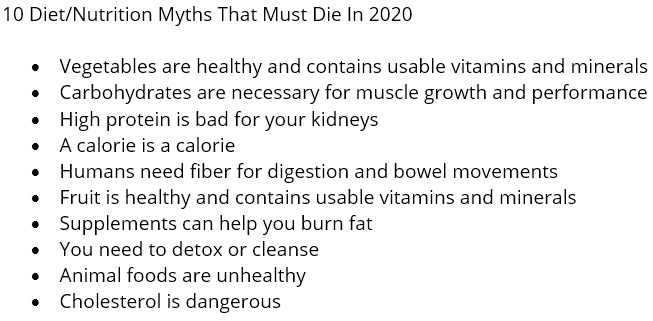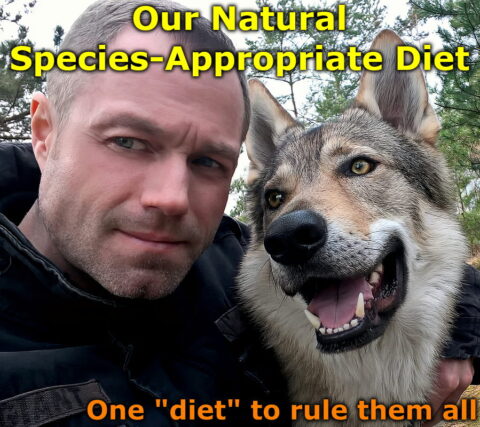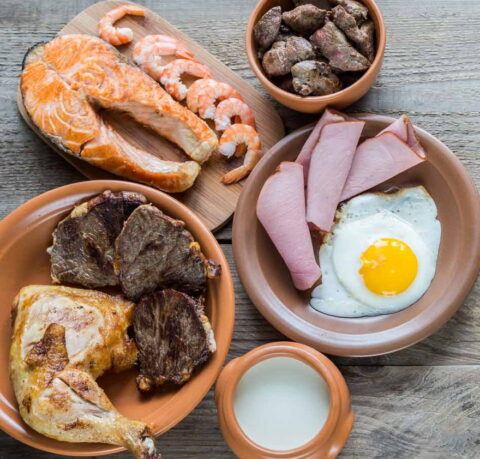10 Diet/Nutrition Myths That Must Die In 2020
Plants cannot run away from predators. Therefore, they have developed several sinister defense mechanisms to prevent them from being eaten. These include toxins that are highly poisonous in larger quantities, antinutrients that block nutrients from being absorbed and can cause cellular damage, and phytoestrogens that will make the predator infertile. As for vitamins and minerals, none of these are in bioavailable form and must be converted in our bodies. The bioconversion rate is between […]
10 Diet/Nutrition Myths That Must Die In 2020 Read the Full Article »



